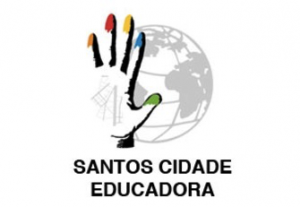FREE FLOW OF INFORMATION
Program received at CPNN
Forum on the Culture of Peace and Non-Violence organized by the Peace Commission of Santos – COMPAZ
With the support of the Restorative Justice Program of Santos, the Secretary of Education of Santos, the Secretariat of Institutional Relations and Citizenship, Santos City Hall, ABrasOFFA and OAB [Brazilian Bar Association].

On August 16 all activities will be held at the Municipal Theater of Santos
Av .: Senador Pinheiro Machado, No. 48.
On August 17 and 18, all activities will be held at the Paulista University of Santos (Unip) Av .: Rangel Pestana, s / nº Auditorium, Block 07, 1st floor.
Program directors:
Liliane Claro de Rezende / Restorative Justice Program / Seduc-PMS
Selma M. S. R. de Lara / Restorative Justice Program / Seduc-PMS
Helena Lourenço / ABrasOFFA – Unip
Diego Duarte / Seges- PMS
* * * * * * * * *
Program of 16 August 2017.
Evening session (7:00 pm to 9:00 pm)
Theme: A trajectory of success for peace.
Speaker: Dr. David Adams
Summary: Presentation of the important trajectory and successful outcome by the director of the International Year for the Culture of Peace – Unesco (2000).
* * * * * * * * *
Program of 17 August 2017.
Morning session (9am to noon)
Theme: The importance of the Culture of Peace: the Force of Example in Education.
Speaker: José Antonio Oliveira de Rezende
Summary: Peace, to be lived, has to be built, day by day, in small acts, from which germinate the great transformations. Peace is to be realized, not only idealized. Peace is done, not given.
(Continued in right column)
Latin America, has it taken the lead in the struggle for a culture of peace?
(Continued from left column)
Afternoon session (2:00 p.m. to 5:00 p.m.)
Theme: Contributions to a multicultural reflection on human rights.
Speaker: Raphael da Rocha Rodrigues Ferreira
Summary: Presentation of Human Rights not only in its expression of universal rights, but also as a multicultural right. Discussion on multiculturalism as a perspective that presents Human Rights as a common resource of humanity, open to the contributions of all civilizations.
Evening session: 7:00 p.m. to 9:00 p.m.
Theme: Culture of Peace and Human Rights as Public Policy of the New Millennium.
Participants of the roundtable: Dr. Cahuê Talarico, Dr. David Adams, Dr. Evandro Renato Pereira.
Importance of the inclusion of the new paradigm of the “Culture of Peace” as an urgent and necessary public policy, in its various developments, based on Human Rights.
* * * * * * * * *
Program of 18 August 2017.
Morning session: 9am to 12 a.m.
Theme: School of value – significance for life and for the art of educating
Speaker: Maria Helena Marques
Summary: Presentation on the possibility of reflecting on human values and their implications in educational practice, in order to found a more ethical school space conducive to the exercise of citizenship.
Afternoon session: 2 to 5 pm
Topic: What is peace? How can we want something if we do not know what it is?
Speaker: Herbert Santos de Lima
Summary: Discussion of the difficulties of understanding the theme and how to make people aware of what to do.
Evening session: 7:00 p.m. to 9:00 p.m.
Theme: Changing Paradigms: The Path begins with Education.
Participants of the roundtable: Prof.Dr. David Adams, Profa. Dr. Selma M. S. R. de Lara, Profa. Ma. Liliane Claro de Rezende
Summary: At the present time, in the world we live in, we are seeing a series of changes in all fields of society, which also leads us to paradigmatic changes, responsible for a new approach in classifying and interpreting the facts. The path of change is at the same time a challenge and an urgent need in education. Education should set principles for this new path, ethical principles that will guide not only the behavior of professionals, but the principles that will guide man’s relationship with nature, of man with other men, and also the principles that will guide the construction of a more just and more humane nation.